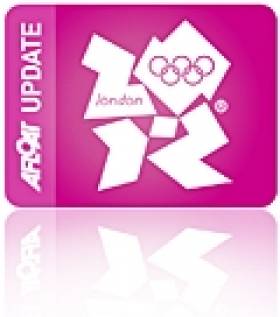Displaying items by tag: Test
Ireland is on the entry list in six classes for the Weymouth and Portland International Sailing Regatta 2011, the London 2012 Olympic Test Event, that has been finalised today.
Ireland's leading hopes for a top result is in the Radial class where Annalise Murphy took bronze at the Sail for Gold regatta at the same venue. There's also high chances in the Star class with Peter O'Leary and David Burrows. Also sailing for Ireland is James Espey is in the Laser, Ross Hamilton in the Finn, Ger Owens and Scott Flannigan in the 470, Ryan Seaton and Matt McGovern in the 49er. A full entry list is available for download at the end of this post.
Sixty six nations have submitted the names of the 460 sailors who will test the conditions at Weymouth and Portland one year ahead of the London 2012 Olympic Sailing Competition.
For many of Member National Authorities there has been a selection headache with nations following game time rules where only one athlete per event is allowed.
In the Finn class Great Britain's Ben Ainslie was selected ahead of Giles Scott and Ed Wright, Spain's Marina Alabau received the nod ahead of Blanca Manchon and Anna Tunnicliffe (USA) lost out to Sally Barkow (USA).
The Women's Match Racers open the Weymouth and Portland International Regatta on 2 August 2011 with the start of their Round Robins. The Men's and Women's RS:X begin on 4 August followed by the Laser, Laser Radial and Men's and Women's 470 on 5 August before the Finn, 49er and Star sailors begin their competition on 6 August.
The London 2012 Olympic Games Sailing Competition will take place at the Weymouth and Portland Sailing Academy and Portland Marina, located in Dorset on the South Coast of England. Racing is scheduled to take place from 29 July to 11 August.At the 2012 Games sailing will introduce women's match racing for the first time. The racing format will be a single round-robin, quarter finals, semi-finals and then the finals. The nine fleet racing events will all sail an opening series before the top ten in each event contest a double-points Medal Race to decide the final positions. The Medal Races have a target time of approximately 30 minutes and will take place close to the shore at the Nothe to allow spectators ashore to get close up to the action.





























































